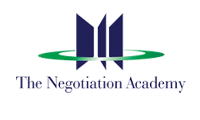Team Negotiation Skills
| "What are the strengths and weaknesses in a teams negotiation skills?" |
A Negotiation Expert Answered:
Team negotiations is a rich and complex area that often sees the best companies in the world stumbling, learning the hard way, with stories often being exchanged at lunch afterwards as a cautionary tale to the rest of the organisation. One of the approaches we suggest is that of segmenting your focus into 2 of the 3 essential phases of your business negotiations. The lens through which to examine your team negotiation skills preparation and engagement is that of your skill levels and team skills mix.
- Negotiation Skills Preparation
- Negotiation Skills Engagement and Review
- Negotiation Skill levels and skills mix
A dual perspective needs to be taken from the individual members point of view, and for the team as a whole.
We have developed an online Negotiation Diagnostic Profiling tool that our clients teams, departments and even companies as a whole are using to assess their negotiation skill levels and areas of opportunity or challenge. We find this exercise most useful in identifying for a client where their areas of team negotiation skills training opportunity lie. The other win is in quickly focussing our time on creating a training intervention that addresses our clients areas of greatest leverage. This saves us time, and our client budget spend. Naturally the greater your teams negotiation complexity, risk and deal size, the greater the need for a negotiation skills team profile. We understand that the graphs and patterns we identify with our profiling is not available to individual team members, so we will now share a DIY set of questions.
1) Questions for your Negotiation Preparation
As any professional negotiator will tell you, preparation is the most important stage in almost any team based negotiation. Negotiation preparation is the foundation necessary for setting the stage to negotiate effectively. You can create and develop your own criteria to keep your evaluation more in sync with your industry. We urge clients to begin with the end in mind by first defining the following:
- Negotiation Strategy
- Deal Objectives and the Deal Strategy used to achieve these
Each negotiation has its own unique circumstances and demands a different approach. The answer to the following 2 essential questions are instrumental in shaping your negotiation strategy, and with it your deal strategies.
- Is yours a one time negotiation where you are unlikely to do business with the person or company again, or will you need to form a longer term relationship? If the product or service being negotiated will make a strategic impact upon the organisation and therefore involve great downside risk, then a collaborative relationship strategy and supporting goals need to be crystallised. The negotiation skills approach recommended is referred as integrative negotiation in most academic negotiation texts.
- Does the product or service under negotiation require a substantial spend / revenue or other substantive value to your organisation? If yes, then a collaborative negotiation approach is again the recommended route.
So to summarise the above, if the negotiation is of strategic impact and involves great value to your organisation, then a collaborative negotiation is the clear choice.
Following are a selection of some questions your negotiation team may find value in asking when preparing:
- Has all relevant investigation been performed on the counter-party / counter-parties with whom you will be negotiating?
- Has the research negotiator sourced and shared relevant industry standards on the issues to be negotiated?
- Has a thorough investigation been performed to ascertain your BATNA (Best Alternative to a Negotiated Agreement or next best option).
- Has a thorough analysis been performed to understand the goals, objectives, team negotiation skills and BATNA of your counter-party?
- Do your team members fully understand their role and function in the negotiation process?
- Have you analysed the differences between your negotiation position and the position(s) of the counter-party / counter-parties?
- How adequate has the agenda for the negotiation been prepared, did you seize control by preparing this agenda?
- How adequate was your initial proposal, offer, or multi-offer proposal developed?
- Was the Walk-Away (bottom line) and Opening Offer adequately defined for each tradeable?
2) Negotiation Engagement
Following are a selection of some questions your team may find value in asking following a role play practice engagement phrase. We strongly recommend clients sharpen their tools before the main event. There are a great variety of case studies from which to choose. The most benefit is gained from using your real life commercial negotiation as a case study. Of course the overriding reason for asking these questions should not be punitive, but instead come from a genuine willingness to learn and improve team negotiation skills performance. So following your team preparation and engagement role play:
- Were the authority levels in decision making understood?
- Were the authority levels of your counter-party understood?
- Was the knowledge of the detailed subject matter being negotiated fully understood?
- Were the positions, concerns, objectives, and goals of the counter-party adequately taken into account?
- Were your negotiators able to open an collaborative dialogue with the counter-party?
- Was a foundation of integrity and trust adequately established with the counter-party?
- Was your lead negotiator able to express sufficient self-control, especially of emotions?
- Were the negotiators able to recognize and take advantage of all available power-stakes to reach their goal or objective?
- Did the team leader control and lead the other members of the team throughout the negotiation?
- Was your team successful in adequately communicating your position(s) to the counter-party?
- Was the negotiator able to adapt your role or posture to changing circumstances throughout the negotiation?
- Was the negotiator adequately cooperative as dictated by the circumstances?
- Were the negotiators appropriately competitive or collaborative as decided in your deal strategy planning?
- Did your lead negotiator respond adequately to any gambits or unethical tactics used by the counter-party, if applicable?
- In retrospect, was gold left lying on the table? Could you have created more value had you stayed with the problem or opportunity for longer?
- Did your negotiation team achieve the goals and objectives of your company?
- Was the experience level and team skills training of the negotiators adequate for this negotiation?
3) Post Negotiation Engagement Review
Following are just a few of the questions worth asking in your post counter-party engagement review to judge your teams negotiation skills effectiveness in an integrative collaborative negotiation:
- Able to translate the company strategy into a deal strategy and detailed goals
- Balancing of Relationship and Substantive goals
- Creation of value so that no gold was left at the table
- A questioning based approach used rather than position taking
- Achievement of goals and appropriate management of expectation for further negotiations or next stage negotiations
- Success in moving the process through the appropriate phases
- Sustainability of commitments
- Learnings captured from an individual and organisational level
- Information sources for future negotiations of this type and for future rounds of negotiations with this counter-party
- Negotiation Trading Plan used to claim and exchange value optimally
- Effective use of framing and re-framing
- Areas of unanticipated conflict and lessons from these
- Creation of a climate conducive to the deal strategy
- Accuracy in predicting the counter-party's top goals and their priority
- Identification and neutralization of tactics
- Teams roles and responsibilities appropriate and stuck to
- Planning for next round negotiation team composition
- Action points recorded and agreed to in a public manner
- Rewards for the team and members of the team for good performance
- Understanding and scoping the counter-party's their BATNA (Best Alternative)
- Persuasion and Influence used appropriately and with effect
Summary
Team negotiations bring with them added complexities not present in most single party negotiations. Complexities need to be managed appropriately, the more so the higher the price tag on the deal and the greater the strategic risk factors. Your company should evaluate your current team based negotiation approach to take advantage of the latest developments in team based negotiation. Many tools and processes exist to support a negotiation team in skilfully navigating their way through challenging and often uncharted negotiation waters. The lists offered here are by no means exhaustive, and are no more than a small sample of the check-lists our clients use in preparing for their complex negotiations. There are many criteria your company can use to adapt to your own particular or unique circumstances to develop and create a more relevant check-list.
It cannot be stressed enough that starting off with a well chosen strategy is key to achieving success. Although it is possible to steer a wayward ship once it has wandered off course, a great deal of time is wasted, and the larger the ship the slower the turn and more expensive the process. So best to have your course chartered at the outset.
The criteria you use may also be developed to correspond to the type of negotiation. For example, you might be entering into an integrative collaborative type negotiation and are negotiating multiple issues to create value and develop a lasting or long term partnership. The criteria you use for this form of negotiation may significantly differ from the criteria you use to measure skills when the team or individual negotiator is involved in a more distributive negotiation or positional negotiation where you are only negotiating a single issue such as price and the negotiated arrangement is not relationship dependent.
Finally, should you feel that a report on your teams negotiation skills competency and identification of areas of skills challenge would be just the feedback needed to propel your teams performance on to the next level, then please do contact us for a no obligations company key to be set up on our Negotiation Diagnostic Profile.Back to Negotiation Questions and Answers
We welcome the republication of this page's contents in part or full - we just ask that you include a clean link back to this site, to our www.negotiationtraining.com.au/training/ page.
|
Reader Comments
Average Reader Rating:
share your comment |
|
|
No comments |






Reader Comments
Average Rating:
Total Comments: 0